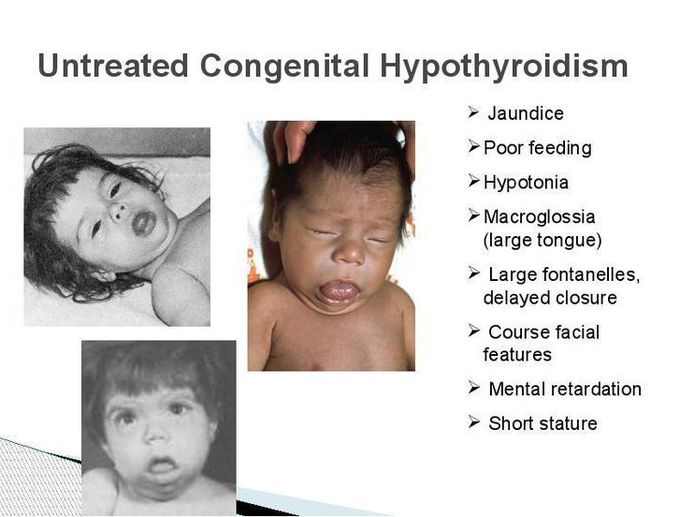


Hypothyroidism in infants
Hypothyroidism in infants Although hypothyroidism most often affects middle-aged and older women, anyone can develop the condition, including infants. Initially, babies born without a thyroid gland or with a gland that doesn't work properly may have few signs and symptoms. When newborns do have problems with hypothyroidism, the problems may include: Yellowing of the skin and whites of the eyes (jaundice). In most cases, this occurs when a baby's liver can't metabolize a substance called bilirubin, which normally forms when the body recycles old or damaged red blood cells. A large, protruding tongue. Difficulty breathing. Hoarse crying. An umbilical hernia. As the disease progresses, infants are likely to have trouble feeding and may fail to grow and develop normally. They may also have: Constipation Poor muscle tone Excessive sleepiness When hypothyroidism in infants isn't treated, even mild cases can lead to severe physical and mental retardation.

